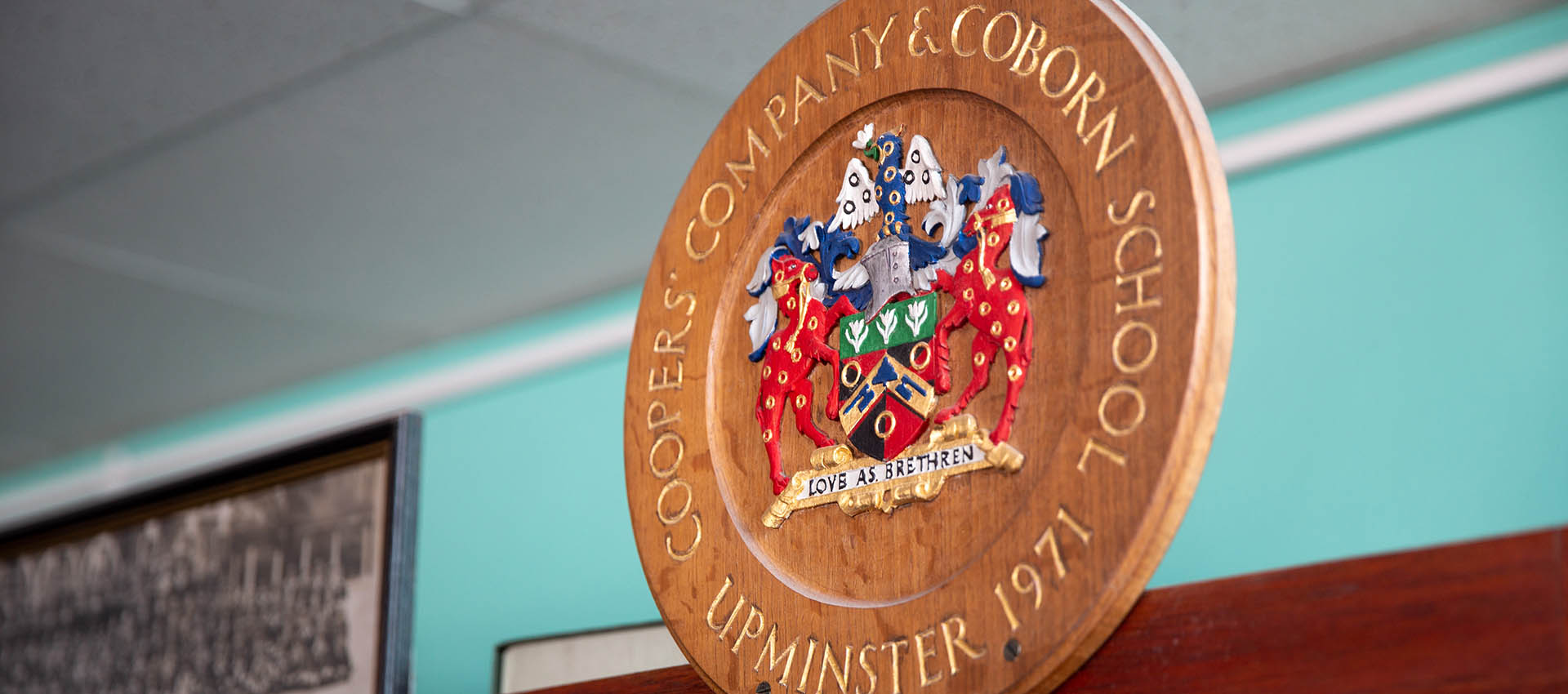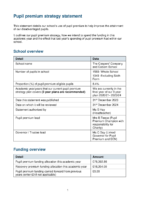Pupil Premium
The Pupil Premium is additional funding given to publicly funded schools in England to raise the attainment of disadvantaged students and close the gap between them and their peers.
Pupil Premium funding is paid to schools according to the number of students who have been:
- Registered as eligible for free school meals at any point in the last six years(Ever 6 FSM) (Disadvantaged Pupils)
- Children with no recourse to public funds (as a result of Covid-19 pandemic)(NRPF) (Disadvantaged Pupils)
- Looked after children (children in care) (Disadvantaged Pupils)
- Children who have ceased to be looked after by a local authority in England and Wales because of adoption, a special guardianship order, or child arrangements order (previously known as a residence order) (Disadvantaged Pupils)
- Children of armed service personnel (Service Children)
- What does Pupil Premium funding go towards? In line with guidance from the Department of Education, the use of our Pupil Premium funding is designed to address achieving the best possible outcomes for disadvantaged children along with their peers.
The approach has three tiers which are broken down as follows:
- High quality teaching. This includes investment in professional development, training and support for early career teachers, along with recruitment and retention. Ensuring an effective teacher is in front of every class, and that every teacher is supported to keep improving.
- Targeted academic support. Evidence consistently shows the positive impact that targeted academic support can have, including on those who are not making good progress, or those who have been disproportionately impacted by the effects of the pandemic. We will consider how classroom teachers and teaching assistants can provide targeted academic support, such as linking structured small group interventions to classroom teaching and the curriculum.
- Wider strategies. These relate to the most significant non-academic challenges to success in school, which in our context include attendance, behaviour, and social and emotional support, as these may negatively impact upon academic attainment. This tier will also include our professional judgement about how we may need to support some students individually with more specific needs, in order that they can access a full and inclusive curriculum.
How would I apply for Pupil Premium Funding for my child?
You do not need to apply for Pupil Premium funding. Your child is automatically entitled if they:
- are from a service personnel family
- have been eligible for Service Child Premium in the past 4 years
- are looked after by the local authority/in foster care for one day or more
- were adopted from care since 2005 or were placed on a Special Guardianship or Residence Order immediately after being looked after.
- have had free school meals at any point in the past 6 years (Ever 6)
- are eligible for free school meals now.
Please note, pupils can choose not to take the free school meal each day but the funding is allocated against their entitlement. We would urge any parent whose child is eligible for free school meals to apply for it, as this releases the funding that can be used to support their child. The free school meals system is managed with complete discretion. We have a cashless system; therefore students are unaware of who is on free school meals and who is paying.
The Local Authority automatically informs us if a child is eligible for free school meals now or has been in the past 6 years, or if they are in local authority care. However, we are not informed about pupils adopted from care, on a Special Guardianship or Residence Order, or those from service personnel families. If you think you may qualify under these categories, please contact Mrs Jacobs at the school.
If you would like to discuss your child’s eligibility for Pupil Premium funding, then please contact Mrs Jacobs at the school and she will be able to help you. Additionally, if your child is already entitled to the Pupil Premium and you wish to discuss how the money is spent, or have ideas on how this money may benefit your child, please contact Mrs Jacobs. You can ring the school on 01708 251802 or contact her via email: hja@cooperscoborn.co.uk
How do I apply for free School Meals?
This website provides details of how to apply: https://www.havering.gov.uk/Pages/Services/Free-SchoolMeals.aspx
Essentially, you are entitled to free school meals for your child if you are in receipt of any of the following benefits:
- Income Support
- Income Based Jobseekers Allowance
- Income Related Employment Support Allowance
- Guaranteed Element of State Pension Credit
- Child Tax Credit (but NOT Working Tax Credit) and have an annual income of less than £16,190
- Support under part VI of the Immigration and Asylum Act 1999
- Working Tax Credit run-on – paid for 4 weeks after you stop qualifying for Working Tax Credit
- Universal Credit
How will the Impact of the spending of the Pupil Premium be measured?
To monitor progress on attainment, new measures will be included in the performance tables that will capture the achievement of students covered by the Pupil Premium and will also be monitored in any inspection of the school. At The Coopers’ Company and Coborn School the usual cycle of data collection and the monitoring and tracking of the cohort’s attainment will be used to inform student progress and enable the early identification of need, support and appropriate intervention. Additionally, each intervention paid for by the Pupil Premium is subject to monitoring, review and evaluation by the Pupil Premium Champion, Mrs Jacobs and, through her, by the Senior Leadership Team and Governors.
Our Pupil Premium Strategy Statement contains further information on how the Pupil Premium is spent at Coopers’ Coborn as well as the impact the funding is currently having. In addition, the role of our Pupil Premium Champion, Mrs Jacobs, is explained in further detail.
It aims to ensure that these pupils benefit from the same opportunities as other students. The amount each student receives ranges from £300 for pupils from service families to £1,900 for those who are in Local Authority care. These amounts are an increase on previous years. How the Pupil Premium is spent is monitored closely with all schools accountable for the impact of the money spent.
Why is there a Pupil Premium?
Nationally, pupils who have been eligible for free school meals at any point in their school career have consistently lower educational attainment than those who have never been eligible. In 2013, GCSE statistics showed that only 38% of students who have been on free school meals in the previous six years achieved five or more A*- C grades, compared to 65% of students who were not eligible for free school meals. In Havering, this gap was 3% wider than the national gap.
For pupils who are looked after, the situation is even more challenging: nationally, only 15% of pupils in local authority care achieve 5 GCSE grades A* – C including English and Maths.
Of course, these statistics generalise across the country, regions and local authorities and it is also the case that many individual pupils who receive free school meals, or come from other eligible backgrounds, continue to buck this trend and achieve highly. Nonetheless, as groups, this is less likely than other groups of pupils. The Pupil Premium is designed to provide money to schools in order to close these gaps.




